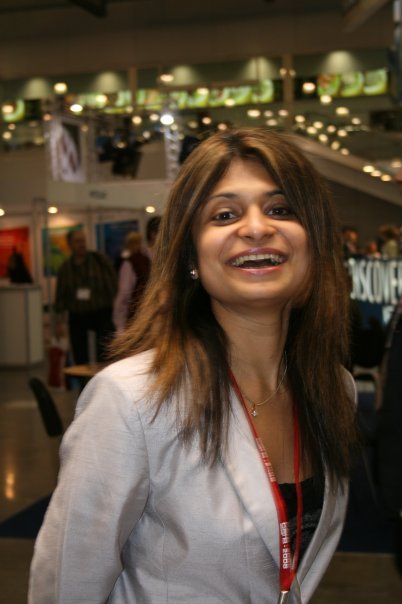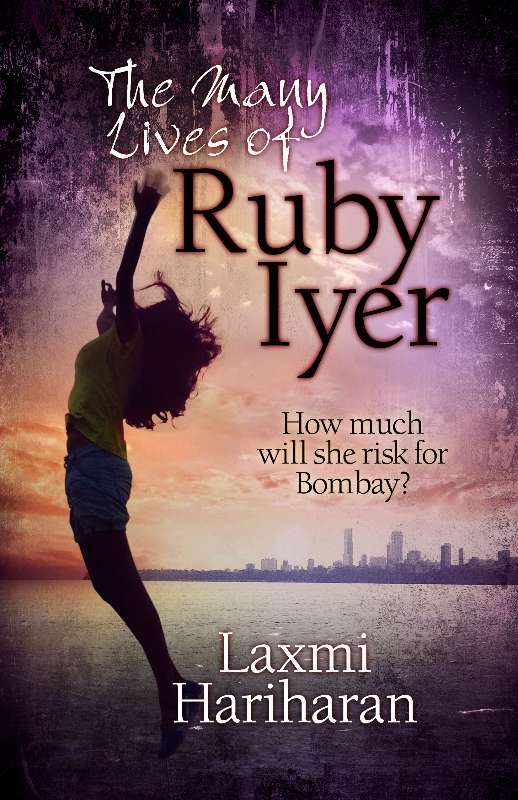Laxmi Hariharan is a self-confessed, world’s ‘sweetest’ tea drinker. In free-wheeling conversation with Asian Lite, this award winning journalist-turned author and blogger tells Rahul Laud about her journey from Mumbai to London and how she is passionate about writing and, her new book –The Many Lives of Ruby Iyer. She also wrote The Destiny of Shaitan, Bombay Chronicles. It went to #2 on the Kindle epic fantasy charts, and won gold at the 2013 global eLit awards.
AL: 1. What made you a writer /author from a marketer?Have you left marketing profession?what do you like the most between the two? What has been the rub off of these occupations on you?
LH: I am a novelist and a marketer. Being a marketer makes me a better writer and vice versa. No, it’s really true. Everyone has to be a marketer today – to figure out your own positioning in life, what your tone of voice is, what is your niche in this world and to identify your tribe. And this has helped me in better forming my characters. And expressing myself everyday through words has made me a better communicator overall – ergo, a better marketer.
AL: You had a stint as a journalist as well . Does your writing skill and interest have roots in that profession/occupation? Why did you leave journalism?
LH: Thanks to technology today, you can continuously reinvent yourself. You can play many roles in the same lifetime. And mine are simultaneously being a writer, marketer, blogger and a journalist. What’s common is my unique point of view I bring to all of them.
AL: The market is flooded with so many authors. It is becoming an entrepreneur or getting ones book published a very difficult exercise? What is your experience as an author based in London?

- Author Laxmi Hariharan
LH: It depends on what you priorities in life. For me – I have always written. So it was logical that I blog and also write longer form fiction – books. But I owe it to Ruby Iyer really for pushing me over the edge, and really step into my novelist role. Ruby found me. And she is strong and driven and has her own mind. So in a way Ruby paved the way to my becoming a fiction author. I think it’s about how much are you an author in your head. What spurred me on was a near-death experience. I came out of it knowing if I died tomorrow I would really regret it unless I had at least some of my writings out there. So the thought that life can be short spurs me on. Especially, when I am down and tired. It’s like a pick—me—up. Besides, I always feel there are so many others in the world who want opportunities
Ultimately in today’s world as an author, you have to be an authorpreneur. You have to write your books and build your platform to help readers find your characters. So you can’t be one without the other – I believe.
AL: You say ‘Bombay fires your imagination and London is what I create’. Please elaborate
LH: I grew up in Bombay, and it’s the memories of that city in my formative years, which fire my writing. You need to experience extreme emotion to create. At-least for me it’s the highs and lows in my life, which have helped me give shape to what I see in my head. And that’s how I grew up. Lots of highs and lows in a city which is really full on. You think, breathe, feel, smell and see extreme in Bombay. That fuels my writing. London gives me the space to think, create and breathe. So both cities are equally important for me.
AL: From an author/writer’s perspective what is the difference you see between the two cities–London and Mumbai– what is that you like and hate about these two cities?
LH: No easy answers to that. If it hadn’t been for Bombay – and I call it Bombay as that is where I grew up, I wouldn’t have a theme to my writing. I have a love-hate relationship with the city. But I can’t do without it. London is kind of my grown up home. It gives me the space to sit back, breathe and create. So they both play different roles in my life.
Al: Do you think trend of blogging is fashionable today and several authors are mushrooming just for fame?
LH: It’s about wanting to express. If you are compelled to share what you feel, then through blogging you are able to do that. It is really about what you have to say. Is it different, unique? Do people identify with it? How true to yourself are you when you blog (or write). It’s not easy. Can you lay yourself bare – and let the world glance into your soul? If you can, and do that day after day, perhaps someone out there will empathise with what you are trying to say. The first lesson of blogging hence is… Don’t think of it as blogging, or being trendy or fashionable. What are you really trying to say? Have you figured that out yet?
AL: What message do you have for young upcoming bloggers and authors?
LH: Make sure you find a way to keep your bills paid. Creativity can only survive when you carve out a space away from the worry of paying your monthly mortgage. Also find a routine that works for you. Creating is all about the structure in life. Find the structure that works for you and then stick to it. Day after day; month after month; year after year. Simple right?
AL: Your work is fiction. You say your experiences revealed as conversation to episodes to your friend finally resulted in Ruby Iyer. So, do you prefer to make your work autobiographical ?
LH: Ruby is not me. She is her own person. She leads, I follow. Certainly though some incidents from my life fashioned Ruby’s character. But where she goes, what she does, the things that happen to her—her drive to independence, to leave home and run away, survive a bad molestation attempt, finally her attempt to try to rescue her own friend, and save the city— all that is her story.
 AL: Is it difficult for you as a working professional to strike work life balance
AL: Is it difficult for you as a working professional to strike work life balance
LH: Ha ha! Is it difficult to live life? No, you take it a day at a time.
AL: How would you describe your journey from Mumbai to London?
LH: It’s like living many roles in the same lifetime. Every city I lived in has changed me. It broadened my horizons, made me look beyond just me to what was out there. I think the early wanderlust was what I had to get out of my system first. I was fortunate to have jobs which allowed me to travel. Travelling and living in different countries helped me better understand myself and who I am. When you are on your own in an alien country with no family and friends—you turn to yourself and to strangers. You make friends quickly. But you also look inside a lot more, and figure out a little of who you are and what you want. So I had to do that before I was ready to come home ‘metaphorically speaking’ and then find a routine to create.
AL : How is it to be married to another author Naman Ramchandran? How do you two complement each other when it comes to writing?
LH: Naman writes mainly non-fiction (till now) and I write fiction. I am his biggest fan, in awe of his intellect and sheer breadth of knowledge of films which is his passion. I admire him because he was always clear that he was for films and films were for him … and that was it. So simple right?
He is my harshest critic, so I only show him my work when I am sure every single grammatical error has been corrected, otherwise, he can be quite scathing. Other than that on a day to day basis, we actually don’t talk about our work or our projects to each other much. We have so much more to speak about.
It’s quite nice being married to someone with an artistic core. I think it keeps us young at heart, and helps us retain a more innocent view of the world, which I cherish; prevents us from becoming too cynical about life’s ups and downs. It also means you end up valuing simple human everyday gestures, and that is very important.
AL:.What are the challenges before you as an author.
LH: I don’t see myself as just an author. I will always be multi-roled, I think. That’s what makes me a better writer, and gives me the opportunity to meet more people who then help spark the writing. Challenge is always to balance all these different roles.
AL: What’s your take on the television scenario – especially Indian television today?
LH : It’s quantity over quality today. Like that old Bruce Springsteen song: ‘Too many channels, too many programs, yet nothing to watch’. But things have to change. Quality will always stand out whether in TV or in books.